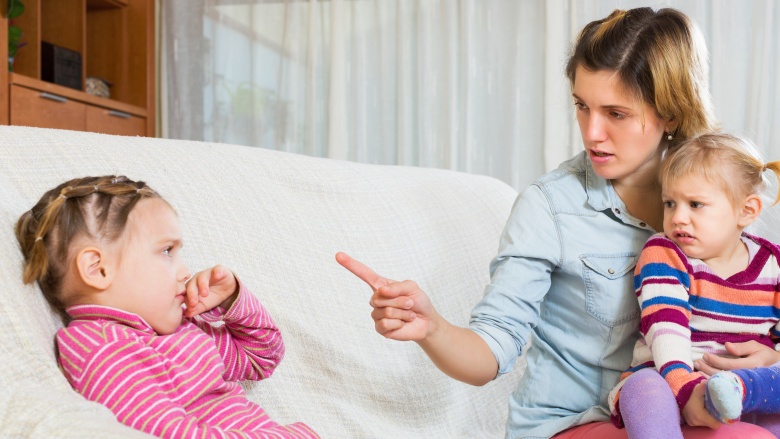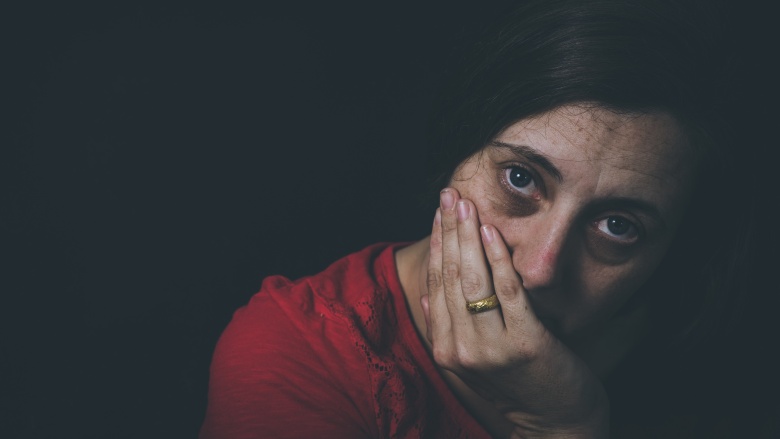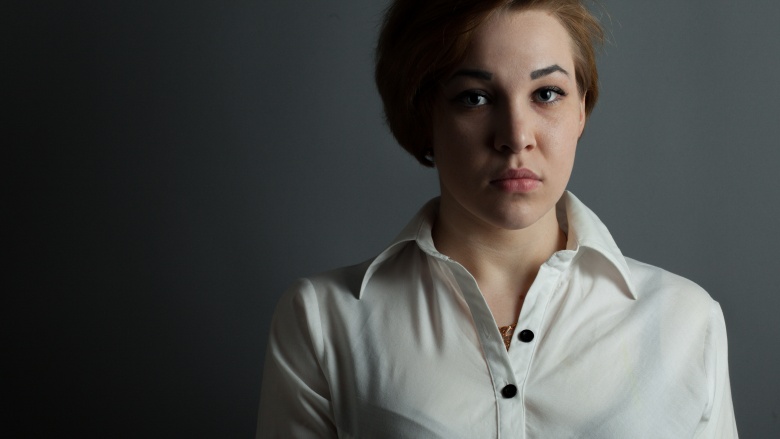10 Symptoms Of Postpartum Depression You Shouldn't Ignore
Having a baby can be one of the happiest times in a new mother's life. While the experience can be at times overwhelming due to stress and exhaustion, generally mothers adapt to their new role without much difficulty. Sometimes, however, new mothers experience a form of depression — known as postpartum depression— that can make the stress and exhaustion feel overwhelming.
While approximately 13 percent of mothers experience postpartum depression it often goes undiagnosed because new mothers are afraid of speaking up about their feelings, at times viewing themselves as bad mothers who are unable to cope. Postpartum depression is not, however, a reflection of a mother's ability to care or love for her child. In fact, it can be a response to the rapid hormonal changes that occur after giving birth, and treatment can help. Below are some surprising symptoms of postpartum depression new mothers should not ignore.
You're sad and crying all the time
This may be one of the more obvious symptoms of postpartum depression. Ever since you had your baby you seem to be crying all the time. The littlest things set you off into weeping and you aren't sure why. Brooke Shields famously spoke and wrote about her own struggle with postpartum depression and compared her crying to the rain that washed away the spider in the Itsy Bitsy Spider nursery rhyme.
Not only can sadness and crying be attributed to the hormonal changes you're going through as a new mother, they may also be a byproduct of lack of sleep and pure exhaustion. Still, if you find you seem to be sad and crying more days than not, it may be helpful to speak with someone.
You feel anxious
While some level of worry is normal as a new parent, many women who experience postpartum depression present with a mixture of anxiety and depression. This can sometimes be hard to distinguish from normal levels of worry and anxiety that accompany becoming a new mom, and is therefore at risk of being overlooked. While worrying about new sounds, tendencies, and reactions your baby produces is pretty normal, worrying constantly about things you can't control, or that seem illogical or impossible to other people, it could be a red flag. If you feel like your anxiety is above and beyond what you think you should be feeling, or if your worry seems constant, talk to your doctor.
You're angry
Maybe everything seems to make you angry lately. Your family and friends are suddenly irritating you incessantly. You feel like throwing things and yelling, but don't know why you feel so mad all the time. This too can be a symptom of postpartum depression. In some forms of depression, including postpartum depression, sudden bouts of anger known as anger attacks can produce a pounding heart, sweating, and chest tightness. It could be that tiny slights are setting you off or things that would normally just irritate you a little are making you explode in anger. Regardless, if you're feeling more frustrated and angry than usual now that you've had a baby, postpartum depression could be an underlying cause.
You have scary or intrusive thoughts
If you've ever had thoughts of harming your baby when he or she is crying, it was likely quite scary for you. Or maybe you've had sudden thoughts of just picking up and leaving your whole family since you gave birth. These thoughts are referred to as intrusive thoughts because they are unwanted and in conflict with how a person normally feels or behaves. While this can be alarming, it is not uncommon among women who experience postpartum depression.
In one study of women who were exposed to either infant crying or infant cooing for ten minutes, 23.5 percent of all women said they had unwanted thoughts of active harm (e.g., throwing, yelling at, shaking the infant). The women in the "crying" group were more likely to have these thoughts than women in the "cooing" group. Intrusive thoughts, while associated with some mental illnesses, are not that uncommon in general. One study that examined people across six continents found that roughly 94 percent of people reported at least one intrusive thought in a three month period. While almost everyone has occasional intrusive thoughts, and having the thoughts does not mean you actually want to act on them, an increase in these thoughts can signal symptoms of postpartum depression.
You feel numb
Maybe you aren't crying, yelling, or having intrusive thoughts, but it's because you aren't feeling much of anything. You may feel empty now that you've had your baby, and like you're just going through the motions of your day. You may feel alone even when you're surrounded by people. Feelings of emptiness as well as an inability to find joy or pleasure in anything are symptoms of depression, including postpartum depression.
This lack of feeling may be particularly alarming for new mothers who don't feel bonded to their children. At the same time you may feel hopeless, like no matter what you do you'll never feel bonded to your child or able to be a good mother. This feeling of being numb or not being able to bond is an important factor in diagnosing postpartum depression, even serving as the basis for a clinical questionnaire in clinical practice.
You can't think straight
While you were pregnant you may have experienced what is colloquially known as "pregnancy brain" where you were forgetting and losing things easily. The problem is that now that you've had the baby, it seems to have gotten worse. You walk around feeling like you're in a fog and your brain just doesn't seem to be working correctly. Both working memory and short-term memory have been found to be impaired in postpartum depression.
Working memory helps you with processing information, so when it's impaired it can lead to these feelings of "brain fog" where you can't understand the things people are saying to you. Short-term memory impairment could be why you can't remember where you put anything since you had the baby, or you're forgetting all of your appointments.
You're not sleeping or sleeping too much
It's no secret motherhood can lead to many sleepless nights, especially when your baby is sick or fussy. Some women, however, find they aren't able to sleep even when the baby sleeps. Others find they're sleeping all the time and aren't able to do the other things they need to do throughout the day.
Both inability to sleep and sleeping too much can be symptoms of depression. While it may be hard to distinguish at first if your own sleeping patterns are normal or not, especially if this is your first child, problems with sleep that occur more days than not for more than a week are worth discussing with your doctor.
You aren't eating enough or are eating all the time
Like sleep, eating disturbances related to depression can come in polar opposite forms. Some women with postpartum depression don't eat enough, but chalk it up to being so busy with the baby and grazing throughout the day. Others find themselves eating all the time and may attribute it to a need for more calories to produce breast milk.
While both of these are possible normal circumstances, a significant weight loss or weight gain postpartum may be a sign that what you're experiencing doesn't fall under normal circumstances. If you have no appetite at all on most days or feel like you may be using food as a source of comfort, it's time to have a chat with a professional.
You don't feel well physically
There's definitely a period of physical recovery after giving birth, but if it's been a couple of months and you're having continued or new physical symptoms, they could be related to depression. Some women experience headaches, back aches, upset stomach, and nausea when they're dealing with postpartum depression. While not every ache or pain means something is wrong, if you're always feeling achy or have an upset stomach, it's worth talking to your doctor.
Finding out what helps
Alone, these symptoms are not cause for concern, but when they're combined and occur over an extended period of time, you may benefit from speaking with a therapist or joining a new mother support group. Some women also benefit from taking medication to help deal with their symptoms. Lots of women deal with postpartum depression and seeking help for it does not mean you are any less of a great mother than any other mom. When you take care of yourself, you're better able to help take care of the people you love, especially your baby.










